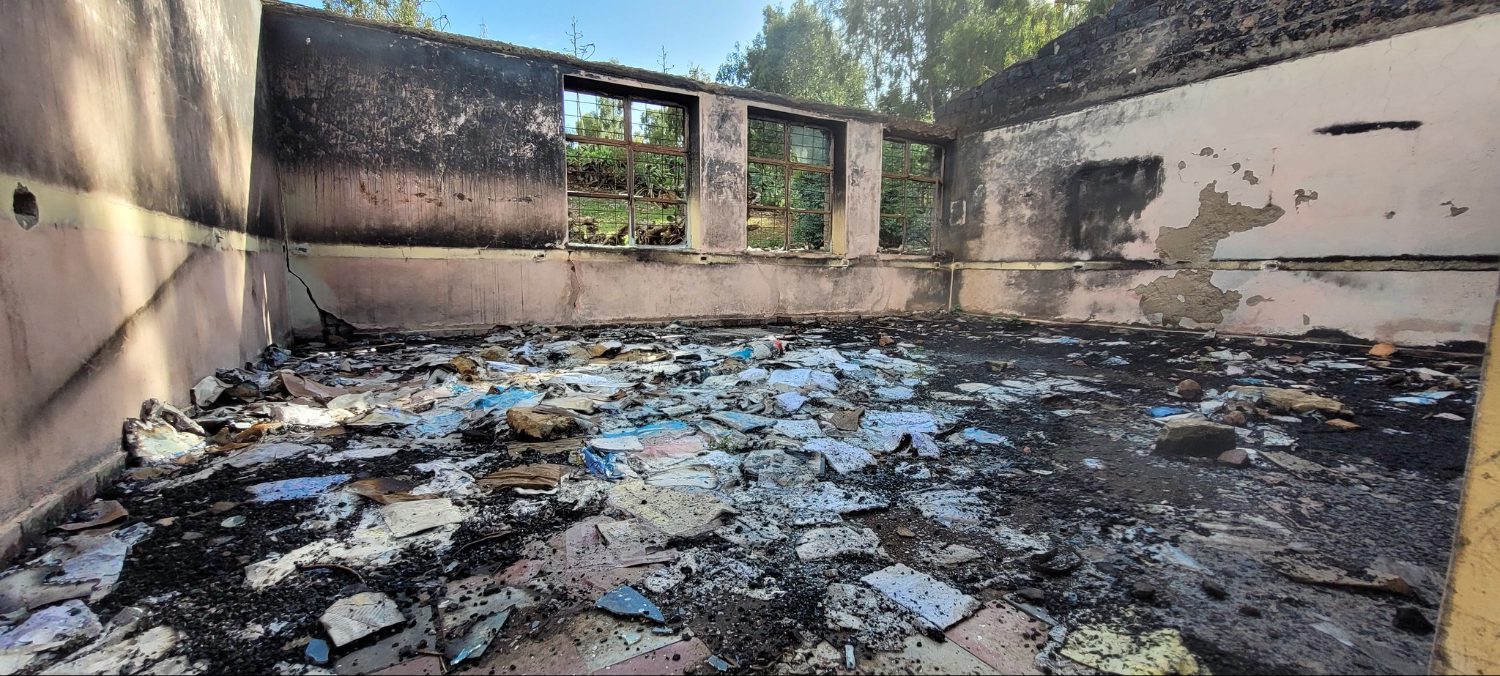A few days ago, Eritrean and Ethiopian troops cut down the mango orchards at Adeba and Tseada on the Zamra river in south-central Tigray. It’s not a massacre, a mass rape or torture. But chopping down those fruit trees is evidence for the war aims of the leaders in Asmara and Addis Ababa.
In a phone call from nearby on March 1, my friend and former colleague Mulugeta Gebrehiwot said this.
… they came with five Eritrean divisions and two Ethiopian divisions and started a campaign to the southern part of Tigray, a campaign in the Samre area. The Tigray forces were to the far south. They destroyed the town of Samre. They came up with Sino trucks, they loaded the grain of the peasant and [indistinct]… it is even difficult to explain it in words, the level of destruction.
There is one valley that had an irrigation system that had a massive plantation of mangoes. They literally eliminated that village. The plantation is on a river called Zamra. It is an irrigation system and the two big villages are a called Adeba and a village called. Tseada. They literally cut down the trees, the fruit trees. You remember we had some mangoes at home when you visited us in Mekele last time; one of our sisters lives in that village, there were mangoes she brought us from there. They cut all of them down. It takes six to seven years to take fruit from a mango tree, so this literally means making the people poor for the coming six or seven years, that if is someone replants them immediately.
That’s what we heard today, I received the report two hours ago.
Cutting down fruit trees has a special, age-old prohibition in the laws of war. In Deuteronomy 20:19, God commanded the Jews:
When thou shalt besiege a city a long time, in making war against it to take it, thou shalt not destroy the trees thereof, by forcing an ax against them: for thou mayest eat of them, and thou shalt not cut them down (for the tree of the field is man’s life) to employ them in the siege.
This injunction was developed in the Islamic tradition. The famous and often quoted opinion of Abu Bakr, the first Caliph, instructed Muslims as follows:
Stop, O people, that I may give you ten rules for guidance on the battlefield. Do not commit treachery or deviate from the right path. You must not mutilate dead bodies; do not kill a woman, a child, or an aged man; do not cut down fruitful trees; do not destroy inhabited areas; do not slaughter any of the enemies’ sheep, cow or camel except for food; do not burn date palms, nor inundate them; do not embezzle [booty or spoils of war] nor be guilty of cowardliness… You are likely to pass by people who have devoted their lives to monastic services; leave them alone.
These traditions single out fruit trees for protection because they are the essential source of sustenance for rural people. Destroying them is a specially egregious form of starvation crime, because it takes so many years to recover.
The wanton destruction of the orchards along the Zamra River reveals the intent of the armies rampaging through Tigray. Their goal is to reduce the Tigrayan people to penury, to grind them down so that they can never rise again.
It is the oldest crime of war on the books.


